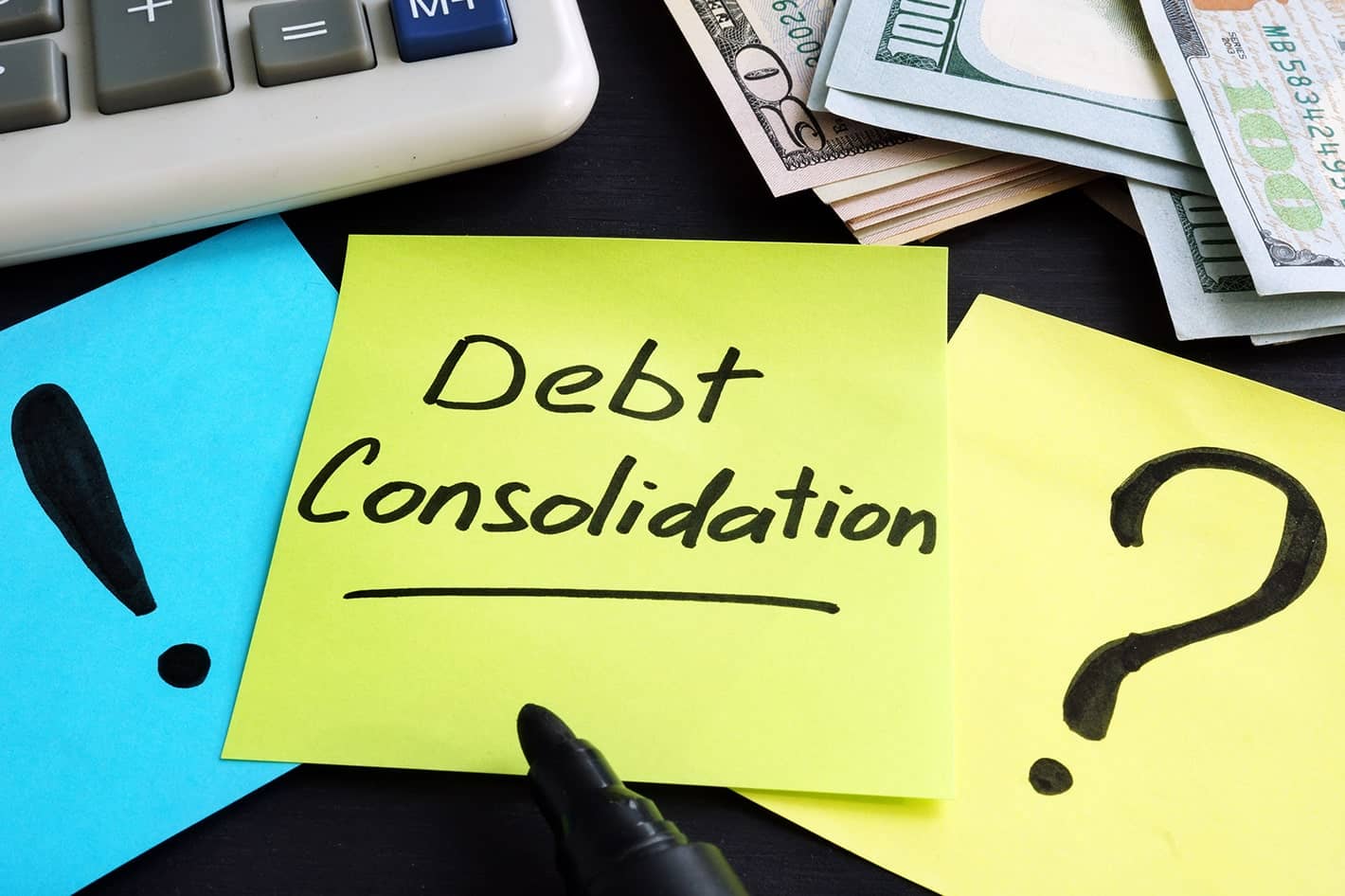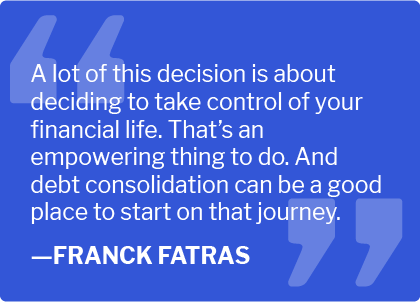
Is Debt Consolidation a Good Idea for You?
LendingPoint president Franck Fatras answers some essential questions about debt consolidation and discusses when it could be the right move for someone’s financial well-being.
For those struggling with a large volume of debt, consolidation can be a useful tool. If you’re thinking of consolidating, it’s important to understand both when and why it can be helpful.
Franck Fatras, president of co-founder of LendingPoint, has spent more than two decades in the lending industry.

As chief technology officer before his current role, Fatras helped build and improve the technology platform LendingPoint uses to make it easier for everyday people to get a loan and achieve their financial dreams. And one way he believes people can work toward achieving their financial goals is through debt consolidation.
So, how does debt consolidation work? Simply put, debt consolidation is the process of combining multiple debts into a single monthly payment You can use various methods to consolidate their debt, from a balance transfer card, taking out a loan using equity in their homes, or utilizing a personal loan.
Fatras discusses various debt consolidation strategies, why a personal loan may be a better option for debt consolidation than a credit card, his personal experience with debt consolidation, and more.
In your experience, what type of debt is most commonly consolidated?
Franck Fatras: The number one answer is credit cards. Credit card balances seem to have a way of growing and not being paid down. Suddenly you have a combined monthly payment [across cards] that has accumulated to a huge sum.
We also see people who want to consolidate medical debt, because the payments can become overwhelming in some cases. Oftentimes, people have a medical bill, a credit card payment, and a car payment, for example, and It can be too much, so people look to debt consolidation as a way to combine their payments.
Are there any types of debt exempt from debt consolidation?
Franck Fatras: Not per se. However, there are certain types of debt that it probably doesn’t make much sense to consolidate with a personal loan, like student loans in many cases. Student loans typically have notoriously low interest rates so it’s not something you’d need to consolidate.


What are some of the benefits of debt consolidation?
Franck Fatras: At some point, all of us have had to learn from our financial mistakes. l even had the benefit and experience of a debt consolidation early in my career.
I think debt consolidation can help people sleep at night There are times that you’re stuck with so many bills that you can’t see the end of the tunnel and you feel like you’re only paying interest. After debt consolidation, it can be a lot easier to see yourself make progress on your debts. There’s a certain amount of satisfaction knowing taken charge of your debt and taken charge of your financial future.
By consolidating your debt, you also have the benefit of saving on interest because you’ll be making fewer payments. And because you’ll be making one payment instead of several, it’s also easier for you to take control of your budget, which can help you pay down your debts and get on track for long-term financial stability.
What was your experience with debt consolidation like?
Franck Fatras: Twenty-five or 30 years ago, I tell into the credit card trap that many people fall into. I was young and overspending, and I also had to deal with different events that come up in life, right? It became overwhelming. It becomes this nightmare where you can’t sleep because you’re thinking about making ends meet Debt consolidation allowed me to hit the reset button, and it brought a lot of certainty and stress relief to my life at that time.
What are some considerations individuals should make regarding different debt consolidation methods, such as balance transfer credit cards?
Franck Fatras: With balance transfer credit cards, you have to walk a fine line so you don’t go back into debt. A lot of people will pay off a credit card, but then they will start using it again, which could lead to repeat or even greater debt later on.
There are other types of debt consolidation available, like a home equity line of credit (HELOC), which can be beneficial because they usually come with very low Interest rates. But because it’s a secured loan, it also requires someone to put up their home as collateral if they can’t pay back what they borrowed.


What makes a personal loan a good tool for debt consolidation?
Franck Fatras: A personal loan has a predictable payment schedule, and It can also help boost your credit score if you continue to make timely payments. That also means you know exactly when you’ll be done paying back your debt.
In addition to having a predictable payment schedule, your personal loan payments stay the same month to month, and the same goes for your interest rate. If you have a variable-rate credit card, your interest payment can change If you miss a payment on top of paying a late fee.
Another lesser-known benefit of using a personal loan for debt consolidation is that it can be a good entry point to start building a relationship with your lender. A majority of lenders will look at your loan repayment history and could be more willing to offer you other products and services later on if you pay back your loan on time.
What advice would you give to someone thinking about debt consolidation?
Franck Fatras: A lot of this decision is about deciding to take control of your financial life. That’s an empowering thing to do. And debt consolidation can be a good place to start on that journey.
Unlock the Possibilities See what the possibilities are with no obligation or Impact to your credit score. Check your loan options now.

